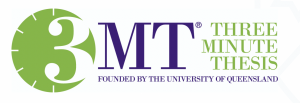Upcoming events hosted by or involving Genetics Otago will be listed here. Please check back regularly for updates. A calendar of events that may be of interest to our members can be found at the bottom of this page and in the sidebar of other pages on this site, please note that this includes events hosted outside of Genetics Otago.
Calendar of Events
The below is a calendar of events hosted by GO as well as events hosted by others that may be of interest to our members. If you have an event you would like us to include please contact us here.
Dr Kiel Hards, Department of Microbiology & Immunology, University of Otago
Understanding synergy, mutualism and redundancy in microbial metabolism
From enzymes to ecosystems, biology exhibits cooperative behaviours at all levels. Whether it is enzyme cooperativity or plant pollination, the biological responses of multiple factors tend to be greater than the sum of their isolated components. However, reductionist approaches to bacterial physiology tend to overlook the intra- and inter-organism relationships of metabolic pathways, leading to unexpected outcomes in vivo or in situ. Increased understanding of these phenomena are required for diverse research outcomes, ranging from improved rationale design of antibiotics to enhanced understanding of global gas cycles.
In this seminar, I will cover three recent projects where I am reconstructing the molecular interactions of microbial metabolic pathways at various levels:
- Interspecies electron transfer and its role in supporting pathogen-commensal interactions
- Functional redundancy in terminal oxygen reduction and the need for dual inhibition in Tuberculosis therapies
- Mixotrophy in thermoacidophilic methanotrophs and why extremophiles retain metabolic flexibility
Dr Louise Bicknell, Department of Pathology, University of Otago
Genetic insights into human brain and body development
We are interested in how genetic variation in our genomes influences our development and lifetime health, with a particular focus on rare Mendelian disorders of brain and body growth. We use exome and genome sequencing of NZ and overseas patients as a starting point to identify and characterise candidate disease-causing variants using a variety of molecular biology techniques. Our studied conditions are “one-in-million”, so we rely heavily on international collaborations to strengthen our genetic evidence.
In this seminar I will give an overview of the different research projects we are undertaking, linking together the clinical, genetic and molecular knowledge we have gained from our study of human genetic syndromes. Particular emphasis will be on our long-term study on Meier-Gorlin syndrome and DNA replication, and our more recent research into NZ families with microcephaly (reduced brain size), where we have discovered novel disease genes such as a splicing component, and histones.
This one-day symposium will bring together researchers from a wide range of applications of quantitative genetics in the Otago region (including collaborations), such as
- Genetic improvement for primary industries, e.g., horticulture, viticulture, forestry, or farming.
- Biomedical and forensic research, where quantitative genetics is used extensively in research and forensic applications, and increasingly for medical diagnostics and interventions.
- Conservation and biosecurity sectors, particularly for the management of rare and/or endangered species, and for utilisation of host resistance for post-border responses to biosecurity threats.
More info here: https://blogs.otago.ac.nz/go/events/
See attached PDF for details of each weeks seminar:
Early & Mid Career Scientists and Postgraduate Students are invited to meet with Kiel before his seminar, to find out how he got to where he is today. Bielschowsky meeting room, 12-1pm (snacks included!) Please RSVP to Glen Reid (glen.reid@otago.ac.nz) as there is a limited capacity.
Interspecies electron transfer mediates energy generation in pathogen- commensal communities
Dr Kiel Hards
Department of Microbiology & Immunology University of Otago
The human microbiome is a consortia of microorganisms in and on our bodies that is often called our most underappreciated organ. In reality, the microbiome is far more complex than a single organ and issues in our microbiome can affect diverse health issues including cancer, diabetes, mental health, infections and sleep quality. Several studies have been able to describe what makes up our microbiome, defining our “good” and “bad” bacteria, but few studies have investigated how these microbes interact with each other and ourselves. Recently, it has been suggested that metabolic interactions within the microbiome may influence our ability to acquire community- and hospital-acquired infections, including those by Staphylococcus aureus, Streptococcus agalactiae and Enterococcus faecalis. This has highlighted a process where different bacteria make and share electricity for generating energy by cellular respiration, known as interspecies electron transfer. In this talk, I will discuss recent data from my group that suggests the common probiotic Lactococcus lactis stimulates respiratory energy generation in S. agalactiae by interspecies electron transfer. This suggests that genes from other bacteria may be essential for opportunistic pathogens in vivo. By understanding the critical functions of our microbiome, we can better understand the various diseases affected by microbiome dysfunction and design microbiome directed treatments for these disorders.
See attached PDF for details of each weeks seminar:
See attached PDF for details of each weeks seminar:
This entertaining event gives thesis students the chance to present their research to a large audience while competing for a number of generous prizes, with the overall University of Otago Doctoral winner going on to participate in the online Asia-Pacific 3MT® final. We also have the opportunity to send the best Master’s contestant to represent the University in the online New Zealand Masters 3MT® National Inter-University Challenge.
The competition is open to both thesis Master’s and Doctoral students, who must communicate their research in no more than three minutes, with the help of only one static slide, with the presentation aimed at a non-specialist audience.
At this stage, the local 2021 University of Otago competition will be held in person, but arrangements are being made to revert to an online competition if necessary.
Entries close Friday 25 June
Register for this event
Have a look at past years’ events on our archive page.


